Remember the law that limited duplexes? Here's how many have been approved and where.
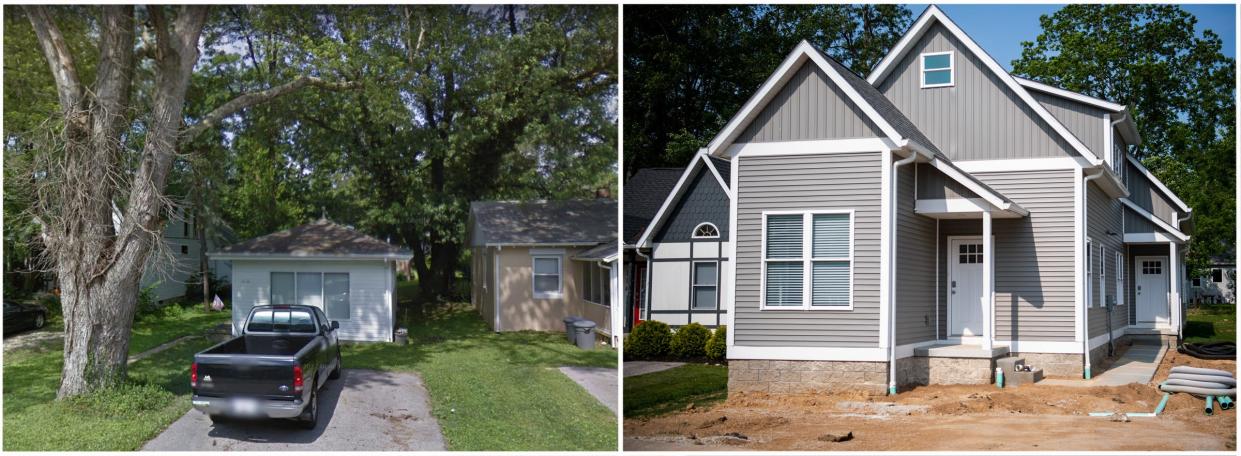
A local law, passed after emotionally charged multi-day debates with accusations of racism and classism, has so far had a negligible effect on neighborhoods and housing affordability.
Here’s what the law intended, why proponents thought it was a good idea and why some local residents, including former Mayor Tomi Allison and likely future mayor Kerry Thomson, totally or partially opposed it.
More: A local builder wanted to construct 68 homes. Now he's building storage units. Here's why.
When did the city adopt the local law?
The Bloomington City Council passed the law about two years ago after six days of debates, involving hundreds of commenters and took, in total, about 26 hours. The shortest of these meetings was just under four hours. During one meeting, nearly 100 people provided comments.
What does the law do?
The law allows for the creation of up to 15 duplexes per year in the city’s R1, R2 and R3 zoning areas, which are dominated by single-family homes, though it restricts just how many can be built in close proximity. Triple- and quadplexes are allowed in very limited areas.
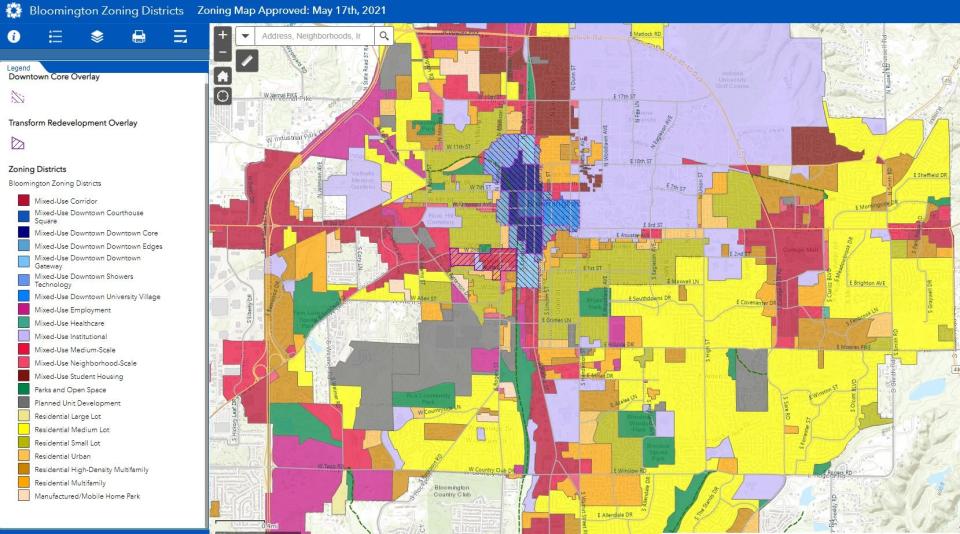
Why was passing the law so contentious?
The law now allows property owners and homeowners to build duplexes — with permission from the Bloomington Board of Zoning Appeals — where only single-family homes were once permitted.
Proponents of the bill generally argued the change was needed because of high local housing prices and low local housing supply. Adding additional housing units to the city, proponents believe, would enable more people to live here and put a downward pressure on housing prices.
According to an analysis provided by the Monroe County Treasurer’s office last month, local homeowners this year saw their property tax bills rise by an average of 22.2%.
However, many established homeowners feared investors with deep pockets would swoop into Bloomington, buy lots of single-family homes and flip them into duplexes so they could rent apartments to up to six college students. Opponents also worry about traffic, noise, infrastructure and changing the character of their neighborhood.
Mayor John Hamilton, planning officials and some residents, including a group called Neighbors United, said they believed the proposed changes would address some long-standing problems regarding housing equity, affordability and sustainability. Opponents, including a blog/group called Stop Bloomington Upzoning — now called The Dissident Democrat — said the proposed changes were targeting the wrong neighborhoods for increased density and may actually worsen the existing equity and affordability problems.
Comments by council members and local residents sometimes became emotionally charged, with one opponent saying the city’s plan was “dangerous,” and another saying the law would open the floodgates for investors who would swoop in, buy a bunch of single-family homes and flip them into high-priced rental duplexes.
Meanwhile, a proponent said limiting the number of duplexes locally was just “one more way to limit who we live next to and who we don’t live next to," with another saying that zoning had long been a cudgel for racists.
More: Bloomington City Council incumbents Sgambelluri, Smith ousted in primary
How many new duplexes have been approved since then and where are they?
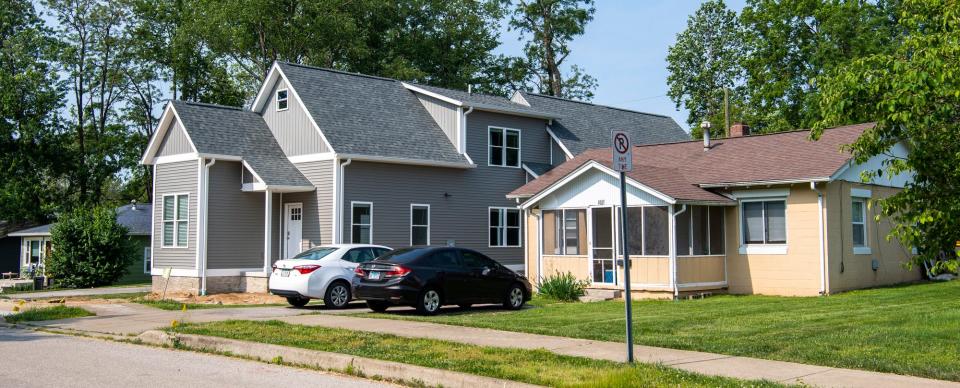
The city has approved three:
110 S. Roosevelt St.: The property has a new duplex on it. According to the local GIS system, Carl W. Lohnkamp sold the property for $110,000 on Feb. 11, 2022, to 110 Cottages LLC. That company was formed in January 2022, according to the Indiana Secretary of State’s office. The company’s registered agent is James F. Bohrer, partner with law firm Clendening Johnson & Bohrer, which has an office in Bloomington.
2408 E. Seventh St.: Zoning Planner and GIS Analyst Karina Pazos said the property owner plans to turn the existing home into a duplex and plans to occupy part of the structure. According to the GIS system, the owner, Daniel P. Medford, bought the property in 2015 for $212,000.
2304 N. Martha St.: This is a vacant lot with a steep dropoff and many trees. The owner plans to build a duplex to be used for rental units, Pazos said. According to the GIS system, the owner, Martha Street LLC, bought the property on March 17 for $125,000 from Jeffrey L. Gladson, who had owned it since the 1990s. According to the Indiana Secretary of State’s office, Martha Street LLC was created on March 7 by local real estate agent Angie Figg.
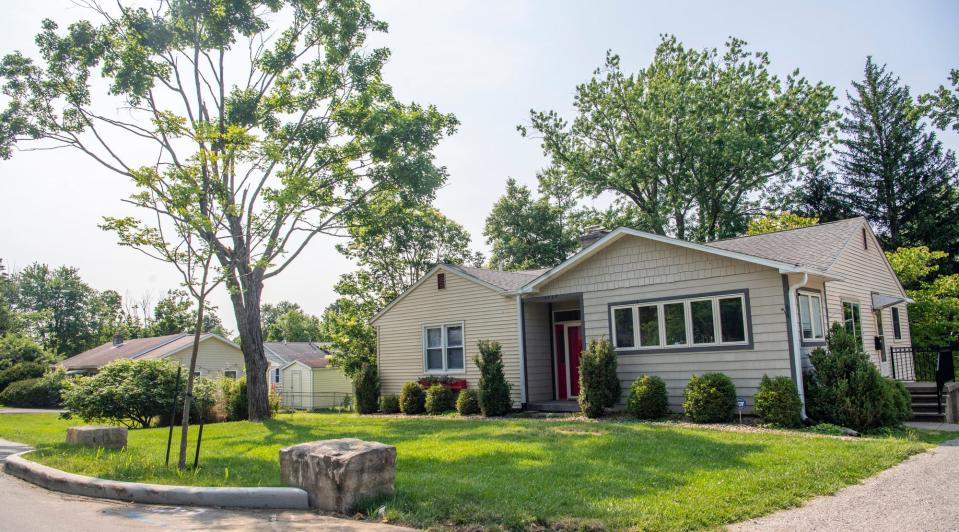
Pazos emphasized there is no owner-occupancy requirement for local homes, including duplexes. And, she said, owners can always change their mind about whether they want to live in their new duplex — or not.
Who supported the bill, who opposed it?
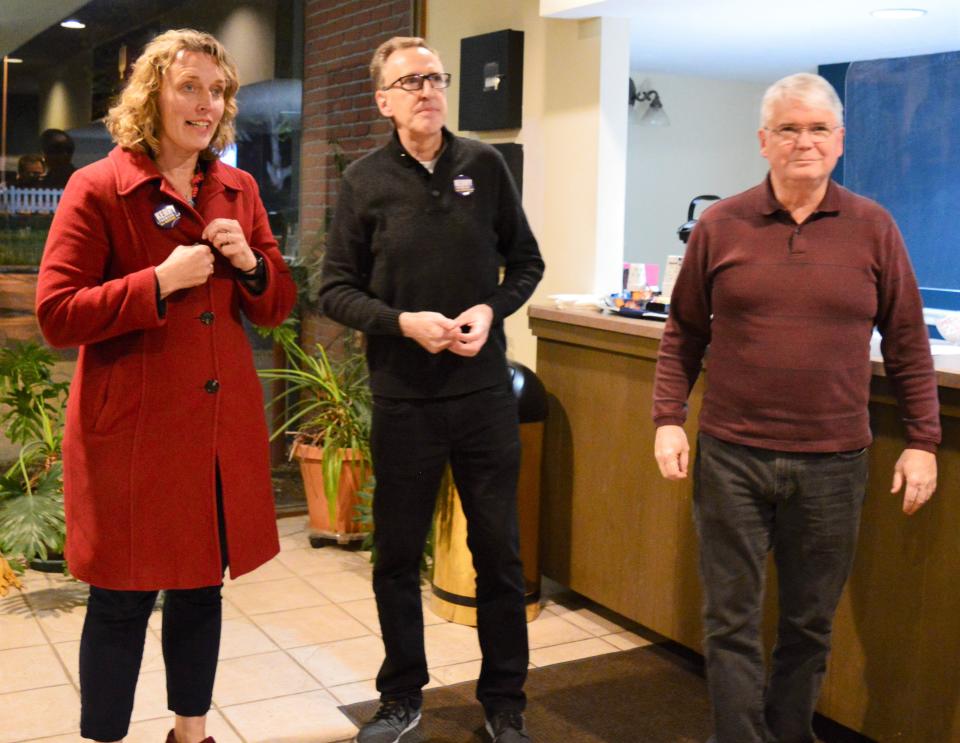
The most prominent supporter of the local law was Mayor John Hamilton. In public comments at the various meetings, supporters generally skewed younger and were more likely to be renters. Opponents tended to be older homeowners.
That split among commenters mirrored, in large part, the split on the city council. The younger members supported the bill while it was rejected only by older homeowners, though the law received support from a majority of current Bloomington City Council members.
People who at least partially opposed the law included Bloomington City Council members Dave Rollo, Ron Smith and Susan Sandberg, former and probable future city council member Andy Ruff, former city council member Jeff Richardson, Monroe County Plan Commission President Margaret Clements, former Bloomington Mayor Tomi Alison and likely future mayor Kerry Thomson.
Rollo said the new law amounted to the “most massive (zoning change) in decades.”
Thomson, the Democratic candidate for mayor in the fall election, chimed in on the law on at least two of the days on which it was being discussed. On May 6, 2021, Thomson said developers would build duplexes with a target of garnering $6,000 per month in rent.
“These duplexes, without affordability guidelines, will go to students,” said Thomson, a former CEO for Habitat of Humanity of Monroe County.
More: Kerry Thomson wins Democratic primary and will likely be Bloomington's next mayor
Caution vs. irrationality
Some of the commenters at the public meetings in 2021 poked fun at the logical fallacies that were being presented. For example, Eoban Binder, who lives in a single-family home in Bloomington, said he has lived in a duplex and promised he was not a drug dealer, though he thought many young people might be considering such a career given the area’s low wages and high property prices.
Some commenters also were quite prophetic: City council member Stephen Volan and Binder said allowing for the creation of more duplexes would have little to no impact on the city.
Binder said the law’s overall impact on housing affordability would be small, simply because the scale of the housing problem is so big. Nonetheless, he said, any duplex that gets built will be “life-changing” for the families that get to live in the unit.
Other speakers, however, cautioned that given the uncertain effects of the zoning changes, it was prudent to exercise caution.
Charles Trzcinka, a finance professor and James W. and Virginia E. Cozad Chair of Finance at Indiana University, said there was little evidence to suggest which of the two sides was going to be correct.
"This means that the strong opinions that people have, including my own, are based on nothing but guesses. … When you’re in this kind of position, … it is intelligent and safe to move ahead slowly," he said.
Volan disagreed, saying the city had actually deregulated housing in 2020, and that the evidence showed that investors were not flocking to Bloomington to turn single-family homes into quadplexes.
“Where are the profiteers?” Volan asked.
The evidence from that experiment, he said, simply underscored the difficulty of building affordable or attainable houses in Bloomington.
The fears of the opponents, Volan said, were simply “irrational.”
Why hasn’t there been more interest in building duplexes?
Senior Zoning Planner Eric Greulich said people struggle to make the math work in a project that involves buying a property with a house and then flipping it into a duplex.
“To get those numbers to work is very hard,” he said.
Out-of-town businesses who want to maximize their return are not looking to build a few duplexes on single-family lots because they want to do hundreds of projects, he said.
Meanwhile, Jacqueline Scanlan, development services manager for the local planning department, said at a recent city council meeting that if the city tweaked the law, planners likely would get more inquiries about duplexes.
The law currently requires that property owners who want to build a duplex obtain approval from the Bloomington Board of Zoning Appeals. Scanlan said uncertainty and confusion about the process likely deters people from pursuing the creation of more duplexes.
She said if the law were changed to simply allow property owners to build duplexes without BZA approval, the city likely would see more interest in their creation. In 2021, the planning department had proposed that duplexes be allowed without BZA approval, but the council added the BZA hurdle.
Scanlan said recently the overall effect of the law and reason behind why more people are not taking advantage of it is still difficult to determine given that the law was passed only two years ago.
“It’s still kind of early,” she said.
Boris Ladwig can be reached at bladwig@heraldt.com.
This article originally appeared on The Herald-Times: Remember that contentious duplex law? Here's what's happened since.

